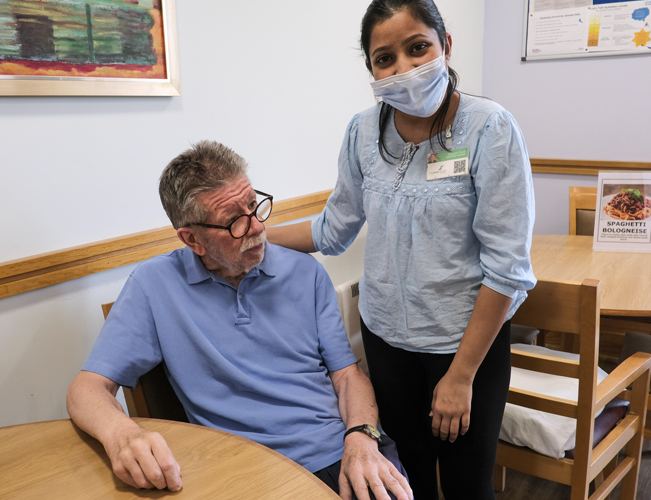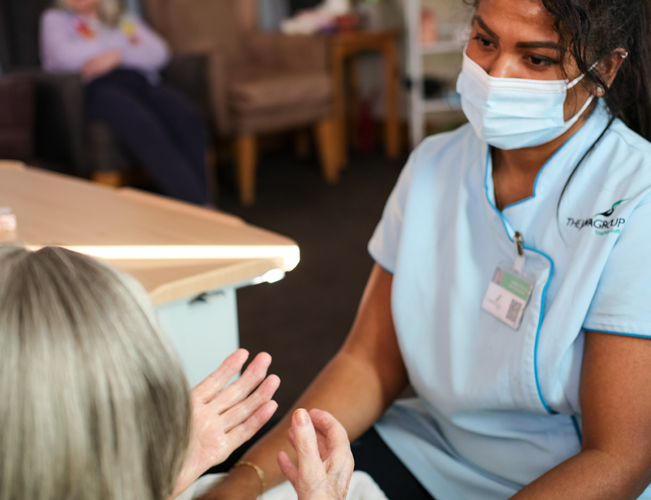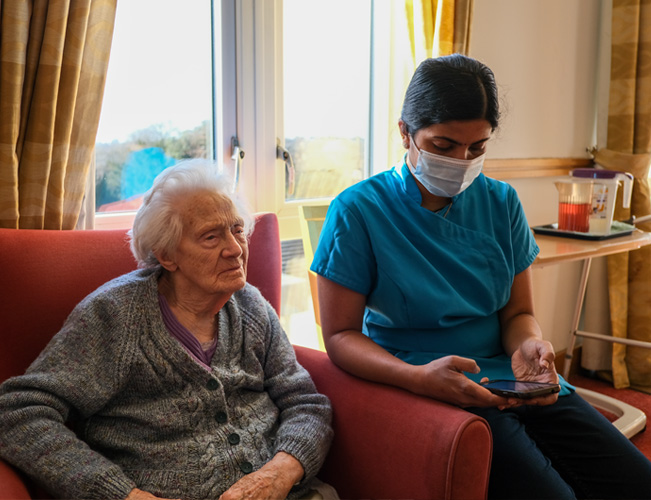
Menu
Close
- Home
- E-Mar
- Care Solutions
- Weight Loss Analysis
- 1:1 Observation
- Reporting and Analytics
- Professional Notes
- Fluid and Nutrition Monitoring
- Icon Driven
- Pre-Admission Assessment
- Service User Filing Cabinet
- QR Code Scanning
- Body Maps
- Service User of the Day
- Effective Handover
- Group Activities
- Hospital Transfer Summary
- Offline Access
- Planned Care Routine
- Chef
- Family
- NEWS2 Chart
- Nutrition
- Accident \ Incidents Trends
- Post-Fall Observation
- Activities
- Dependency Assessment
- Outcomes and Milestones
- Admin Solutions
- Accounts
- Admin
- Clocking in
- Housekeeping
- HR
- Rota
- Visitors Book
- Annual Leave Calculator
- Training Matrix
- Nurse Call
- Staff Reporting
- Policies, Procedure and E-Filing
- Message Centre
- Asset Management
- Staff App
- Billing
- Speech to Text
- Staff Roles and Permissions
- Staff Supervision & Appraisals
- Device Management
- Document Expiry Management
- Feedback and Survey Module
- IP Address Whitelist
- Live Chat Support
- Maintenance
- Memos, Meetings, and Minutes
- Online Training and Tutorial Videos
- Cloud Based Security
- Care Planning
- Audit
- Who We Work With
- Contact
- Home
- E-Mar
- Care Solutions
- Weight Loss Analysis
- 1:1 Observation
- Reporting and Analytics
- Professional Notes
- Fluid and Nutrition Monitoring
- Icon Driven
- Pre-Admission Assessment
- Service User Filing Cabinet
- QR Code Scanning
- Body Maps
- Service User of the Day
- Effective Handover
- Group Activities
- Hospital Transfer Summary
- Offline Access
- Planned Care Routine
- Chef
- Family
- NEWS2 Chart
- Nutrition
- Accident \ Incidents Trends
- Post-Fall Observation
- Activities
- Dependency Assessment
- Outcomes and Milestones
- Admin Solutions
- Accounts
- Admin
- Clocking in
- Housekeeping
- HR
- Rota
- Visitors Book
- Annual Leave Calculator
- Training Matrix
- Nurse Call
- Staff Reporting
- Policies, Procedure and E-Filing
- Message Centre
- Asset Management
- Staff App
- Billing
- Speech to Text
- Staff Roles and Permissions
- Staff Supervision & Appraisals
- Device Management
- Document Expiry Management
- Feedback and Survey Module
- IP Address Whitelist
- Live Chat Support
- Maintenance
- Memos, Meetings, and Minutes
- Online Training and Tutorial Videos
- Cloud Based Security
- Care Planning
- Audit
- Who We Work With
- Contact
Dependency Assessment
Keep Track of Residents’ Needs
Our dependency assessment tool helps you keep track of your care home residents’ requirements. An integrated dependency tool gives you a score to identify the dependency level of each resident. The tool can also help you detect any changes in their levels of dependency.

Attendance tracking software
In pre-digital days, care home staff routinely used manual clock-in systems and signing in sheets to record their comings and goings. Not only was this cumbersome and time consuming, it was also open to abuse and misunderstandings. Switching to a digital clocking in system removes the ambiguity and produces an accurate, central record for attendance management, payroll and security functions. Using attendance tracking software also helps people to analyse patterns in staff movements and timings of shifts. This enables more effective planning to be put in place and helps management to spot any problems or concerns before they become more serious.
Facial recognition software for clocking in
Our attendance tracking and clocking-in software uses the latest in facial recognition software to record staff movement at the start and end of shifts. This limits physical contact with the clocking-in device to aid hygiene management and eliminate cross infection. It also does away with the need for staff to keep electronic fobs on them at all times that can be lost or stolen. The tracking software also links directly to HR functionality that monitors attendance, breaktimes, sickness and lateness. The facial recognition software for staff clocking in works separately to visitor entry procedures, making the process quick and easy.

Configure Risk Assessment
Our tool is used to configure risk assessment at each stage in a resident’s care plan. It provides guidance to help nurses and caregivers eliminate risk and provide the best possible care to each resident.
Monitor Progress of Residents
Data from dependency assessments can be used to monitor progress in a resident’s condition. It evaluates how treatments are working (or not) to reduce a resident's dependency level. It can also set criteria for the number of staff members needed to manage residents’ care and assistance at any one time.

Key Benefits
Help improve and inform the treatment process.
Enable carers to make better decisions about the level of support required.
Allow carers to observe a resident’s health progress over a longer period of time.
Help you reach greater compliance standards.
FAQ’s Section
01What is the role of dependency assessment?
Dependency assessment is used to identify the individual needs of a resident, as well as how effectively a prescribed treatment course is reducing their dependency.
02What can a dependency tool reveal about a resident?
The A dependency tool produces a score that identifies their level of dependency. Factors can include diagnosed medical conditions, level of mobility, cognitive abilities and general behaviour and mood.
03How can this tool help carers and other healthcare staff?
The results from a dependency assessment inform how a risk assessment is drawn up for each resident. It provides personalised guidance so that the carers and other medical staff can concentrate on how best to care for the resident and keep them safe.
